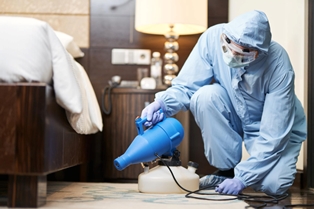Bed bugs, those notorious nocturnal pests, can turn peaceful nights into a nightmare. From infesting mattresses to hiding in cracks and crevices, these tiny insects are adept at making themselves unwelcome guests in our homes. When faced with a bed bug infestation, homeowners often seek various remedies to eliminate these bothersome bugs. One such remedy that frequently pops up in discussions is rubbing alcohol. But does rubbing alcohol truly kill bed bugs, or is it just another myth? Let’s delve into the science behind this common household item and its effectiveness against bed bugs.
Understanding Rubbing Alcohol:
Rubbing alcohol, also known as isopropyl alcohol, is a common disinfectant and solvent found in many households. It’s often used for cleaning wounds, sanitizing surfaces, and even dissolving substances. With its ability to kill bacteria and some types of viruses, rubbing alcohol has earned a reputation as a versatile cleaning agent.
Contact Killing:
Rubbing alcohol is believed to kill bed bugs upon direct contact by disrupting their cell membranes and dehydrating them. When sprayed directly on bed bugs, the alcohol can penetrate their exoskeletons, leading to their demise. However, this method is most effective when the alcohol comes into direct contact with the bugs, making it challenging to reach all the hidden bugs in an infestation.
Limited Residual Effectiveness:
One of the drawbacks of using rubbing alcohol is its lack of residual effectiveness. Unlike professional insecticides designed specifically for bed bug eradication, rubbing alcohol evaporates quickly and leaves no lasting residue. This means that while it may kill bed bugs that come into direct contact with it, it won’t prevent new bugs from emerging or deter them from returning to the treated area.
Safety Concerns:

While rubbing alcohol may seem like a convenient DIY solution for bed bug infestations, it’s essential to consider safety precautions. Alcohol is highly flammable, and using it in large quantities or near open flames can pose a fire hazard. Moreover, prolonged exposure to rubbing alcohol fumes can be harmful to human health, causing respiratory irritation and other adverse effects. Therefore, it’s crucial to use rubbing alcohol in a well-ventilated area and avoid excessive spraying.
Alternative Solutions:
Given the limitations and safety concerns associated with rubbing alcohol, homeowners may want to explore alternative methods for dealing with bed bug infestations. Some effective strategies include:
Heat Treatment:
Bed bugs are sensitive to high temperatures, so using heat treatments such as steamers or dryers can be effective in killing them and their eggs.
Vacuuming:
Regular vacuuming of infested areas can help remove bed bugs and their eggs, reducing the population and preventing further spread.
Professional Pest Control:
For severe infestations, seeking help from licensed pest control professionals is often the most reliable solution. They have access to specialized equipment and insecticides that are more effective in eradicating bed bugs safely.
FAQs answer
While rubbing alcohol can be used alone to kill bed bugs upon direct contact, some people mix it with other substances for added effectiveness. One common mixture is to combine rubbing alcohol with water to dilute it and make it safer for use on surfaces. However, it’s crucial to avoid mixing rubbing alcohol with bleach or other household chemicals, as this can produce toxic fumes and pose health risks.
While several homemade remedies are touted as bed bug killers, their effectiveness can vary. One popular homemade bed bug killer involves creating a mixture of rubbing alcohol and water in a spray bottle and applying it directly to bed bugs and their hiding places. However, other effective homemade solutions include diatomaceous earth, essential oils such as tea tree oil or lavender oil, and baking soda. These substances can help dehydrate or suffocate bed bugs when applied directly to infested areas.
Several natural remedies are believed to kill bed bugs instantly or over time. Some of the most effective natural bed bug killers include heat treatments, such as using steamers or clothes dryers on high heat settings to expose bed bugs and their eggs to temperatures that are lethal to them. Additionally, diatomaceous earth, a fine powder made from fossilized algae, can be sprinkled in infested areas to dehydrate and kill bed bugs upon contact. Essential oils like tea tree oil or peppermint oil are also known to have insecticidal properties that can help repel or kill bed bugs.
Bed bugs are known to have certain aversions, and there are several substances they dislike. One of the things bed bugs hate the most is heat. Exposing bed bugs and their eggs to high temperatures above 120°F (49°C) can kill them effectively. Additionally, bed bugs dislike certain scents, such as those from essential oils like lavender, peppermint, or tea tree oil. These scents can act as natural repellents and help deter bed bugs from infesting areas where they are present.
Conclusion:
While rubbing alcohol may have some insecticidal properties, its effectiveness in eliminating bed bug infestations is questionable. Its lack of residual effect and safety concerns make it a less-than-ideal solution for tackling these resilient pests. Homeowners dealing with bed bug infestations should consider alternative methods such as heat treatment, vacuuming, or professional pest control for more reliable results. When it comes to bed bugs, thoroughness and persistence are key in achieving successful eradication and reclaiming a pest-free home.

